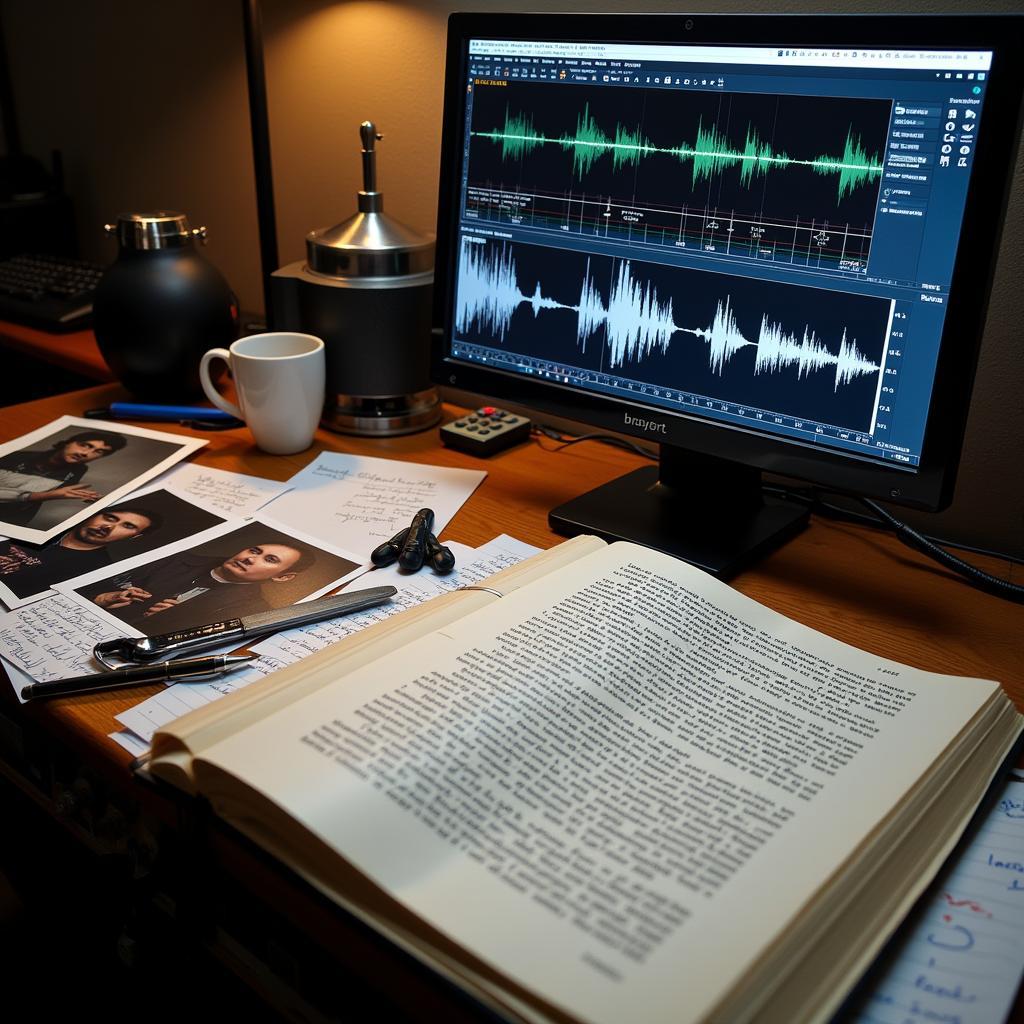Exploratory research case studies offer a unique lens into understanding unexplained phenomena. Within the realm of paranormal investigation, where empirical evidence is often elusive and anecdotal accounts reign supreme, this research approach becomes crucial. It allows researchers to delve into the unknown, formulate hypotheses, and pave the way for more rigorous scientific investigation.
What exactly is an Exploratory Research Case Study, and how can it be applied to paranormal research? This article will explore the intricacies of this methodology, providing practical insights and real-world examples of how it can shed light on the mysteries that lie beyond our current understanding. We’ll examine how this approach allows us to gather preliminary data, identify patterns, and develop a deeper understanding of the paranormal.
Defining Exploratory Research Case Studies
An exploratory research case study is a valuable tool for investigating phenomena where little prior knowledge exists. It’s less about proving a point and more about understanding the “what” and “how” of a particular event or situation. This approach emphasizes flexibility and open-ended inquiry, allowing researchers to adapt their methods as they uncover new information. In the context of paranormal research, this adaptability is essential given the often unpredictable and subjective nature of the subject matter.
Why Choose an Exploratory Approach for Paranormal Research?
The unpredictable nature of paranormal phenomena often necessitates an exploratory approach. This method allows researchers to gather qualitative data through interviews, observations, and document reviews. Imagine investigating a haunted house. An exploratory study allows the researcher to delve into the history of the location, collect eyewitness accounts, and analyze any existing evidence without being constrained by pre-conceived notions. This flexibility is critical in a field where the “rules” are still being written. See our article on primary research articles for more details on gathering primary data.
Applying Exploratory Research to Paranormal Investigations
How can we effectively use exploratory research in paranormal investigations? Let’s consider a specific example: reports of a spectral figure in a historic library. An exploratory research case study would start by gathering information from various sources: interviews with library staff and patrons, historical records of the building, and any photographic or audio evidence. This information-gathering stage is vital for building a comprehensive picture of the phenomenon.
Gathering Data: Tools and Techniques
Gathering data in an exploratory case study often involves multiple methods. These can include:
- Interviews: Conducting interviews with witnesses allows researchers to gather firsthand accounts and personal experiences.
- Observations: On-site observations can provide valuable insights into the environment and any potential triggers for the paranormal activity.
- Document Review: Examining historical records, photographs, and other documents can reveal patterns or connections that might otherwise be missed.
For example, in our library case study, reviewing old newspapers might reveal a past tragedy linked to the spectral figure. You can learn more about different research methodologies in our article on creswell research design pdf.
 Exploratory Research in Paranormal Investigation
Exploratory Research in Paranormal Investigation
Analyzing Data and Drawing Conclusions
Once the data is collected, the next step is to analyze it for patterns and themes. This might involve looking for commonalities in witness testimonies, correlating environmental factors with reported activity, or identifying historical connections. While definitive conclusions may not be possible at this stage, the analysis will provide a foundation for future, more focused research. For more on analyzing research, see our article on ex facto research.
 Analyzing Paranormal Data
Analyzing Paranormal Data
“Exploratory research allows us to step into the unknown with open minds,” says Dr. Eleanor Vance, a leading paranormal researcher. “It’s about asking questions, exploring possibilities, and building a foundation for future discovery.”
The Benefits of Exploratory Research Case Studies
Exploratory research offers several advantages in the study of paranormal phenomena:
- Flexibility: It allows researchers to adapt their methods as needed.
- Depth of Understanding: It provides a richer understanding of complex situations.
- Hypothesis Generation: It helps generate hypotheses for future testing.
For more on research methods, see our article on inductive method of research. As Dr. Alistair Blackwood, a renowned parapsychologist, points out, “In a field as complex as paranormal research, exploratory studies are often the crucial first step towards understanding the seemingly inexplicable.” This approach helps refine research questions and pave the way for more targeted investigations, perhaps using quantitative methods as outlined in our piece on which sampling technique is most desirable in quantitative research.
Conclusion
Exploratory research case studies are a powerful tool for investigating the paranormal. They allow researchers to explore unexplained phenomena, generate hypotheses, and lay the groundwork for more in-depth scientific inquiry. By embracing this flexible and open-ended approach, we can move closer to understanding the mysteries that have captivated humanity for centuries.
FAQ
- What is the main goal of exploratory research? To gain initial insights and understanding of a phenomenon.
- How does exploratory research differ from other research methods? It’s more flexible and less focused on confirming pre-existing hypotheses.
- What are some common methods used in exploratory research case studies? Interviews, observations, and document review.
- Why is exploratory research particularly useful in paranormal investigations? Because of the unpredictable and often subjective nature of paranormal phenomena.
- What are some limitations of exploratory research? It may not provide definitive answers or be generalizable to a larger population.
- How can the findings of an exploratory study be used? To inform future research and develop more targeted hypotheses.
- Can exploratory research be used in combination with other research methods? Yes, it can be a valuable precursor to more quantitative research designs.
Need More Help?
Explore more articles on our website related to research methods and paranormal phenomena. If you have specific questions or require assistance with your own Paranormal Research project, don’t hesitate to contact us.
Call us at: 0904826292
Email us at: research@gmail.com
Visit us at: No. 31, Alley 142/7, P. Phú Viên, Bồ Đề, Long Biên, Hà Nội, Việt Nam. We have a 24/7 customer service team ready to assist you.